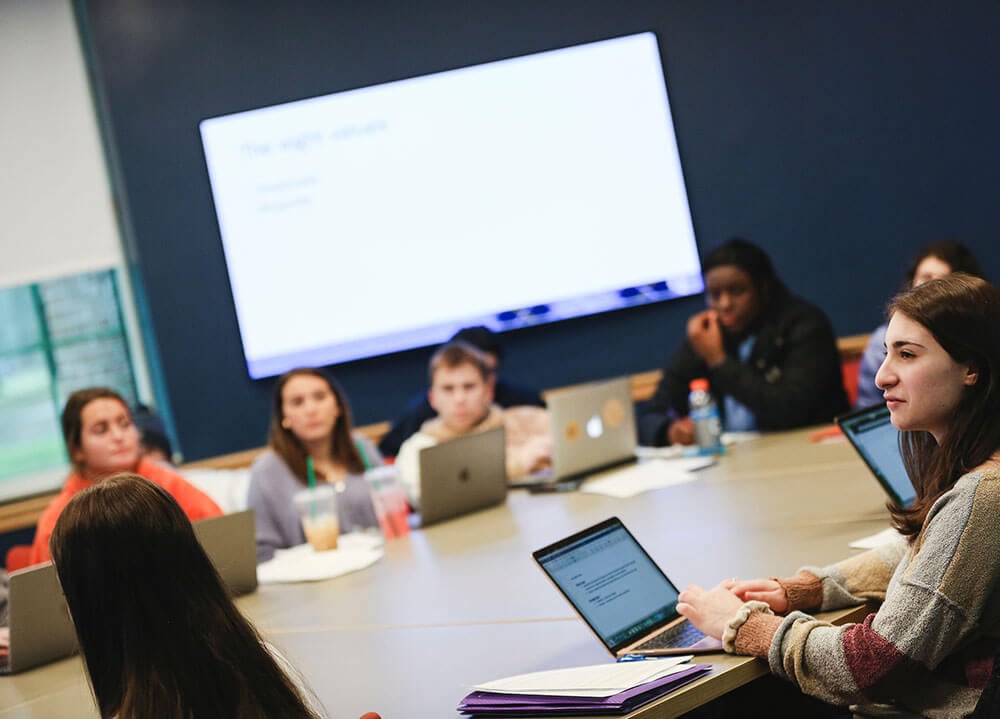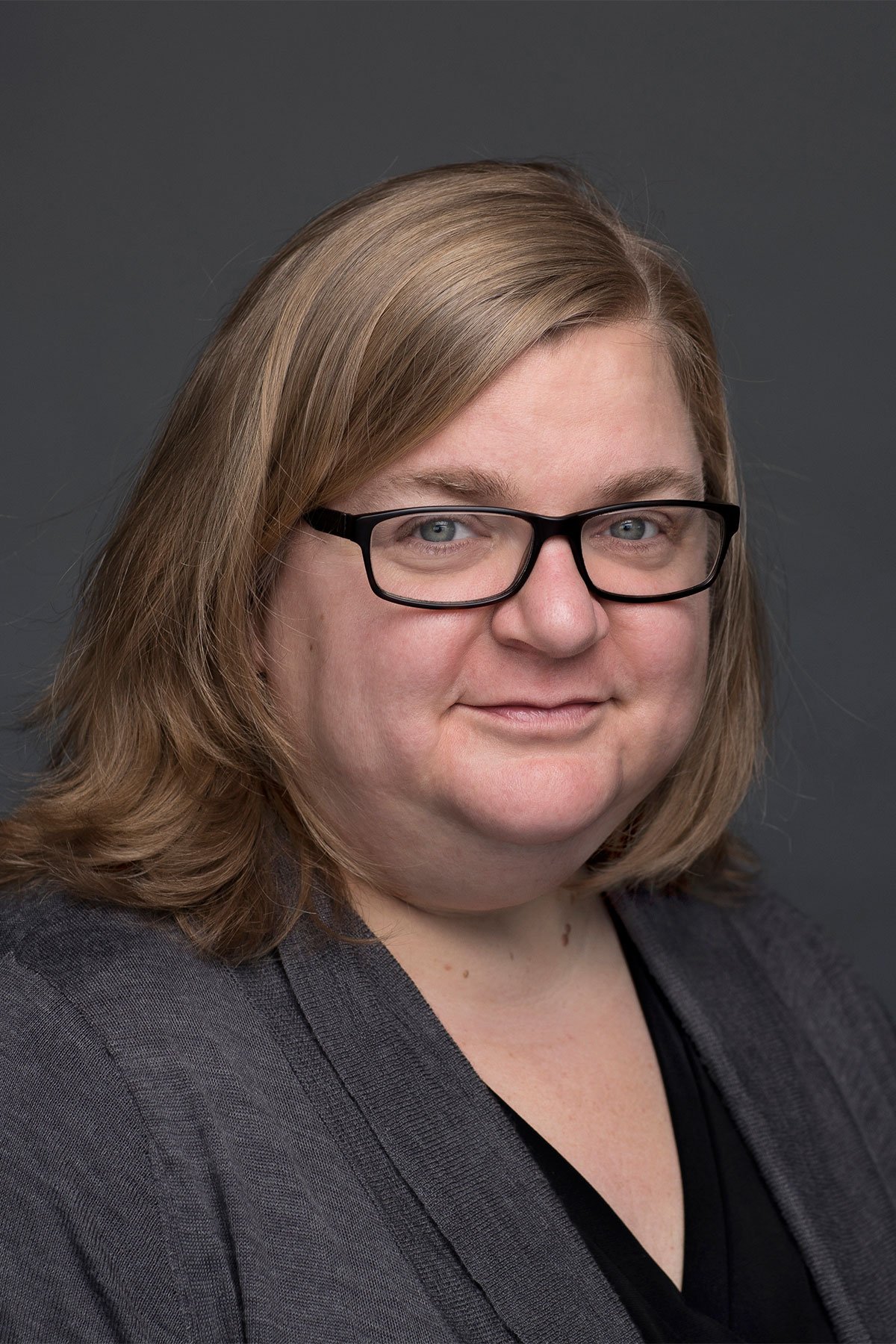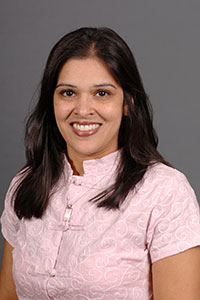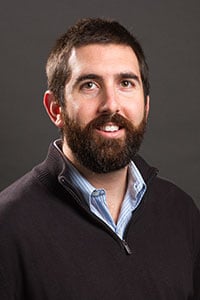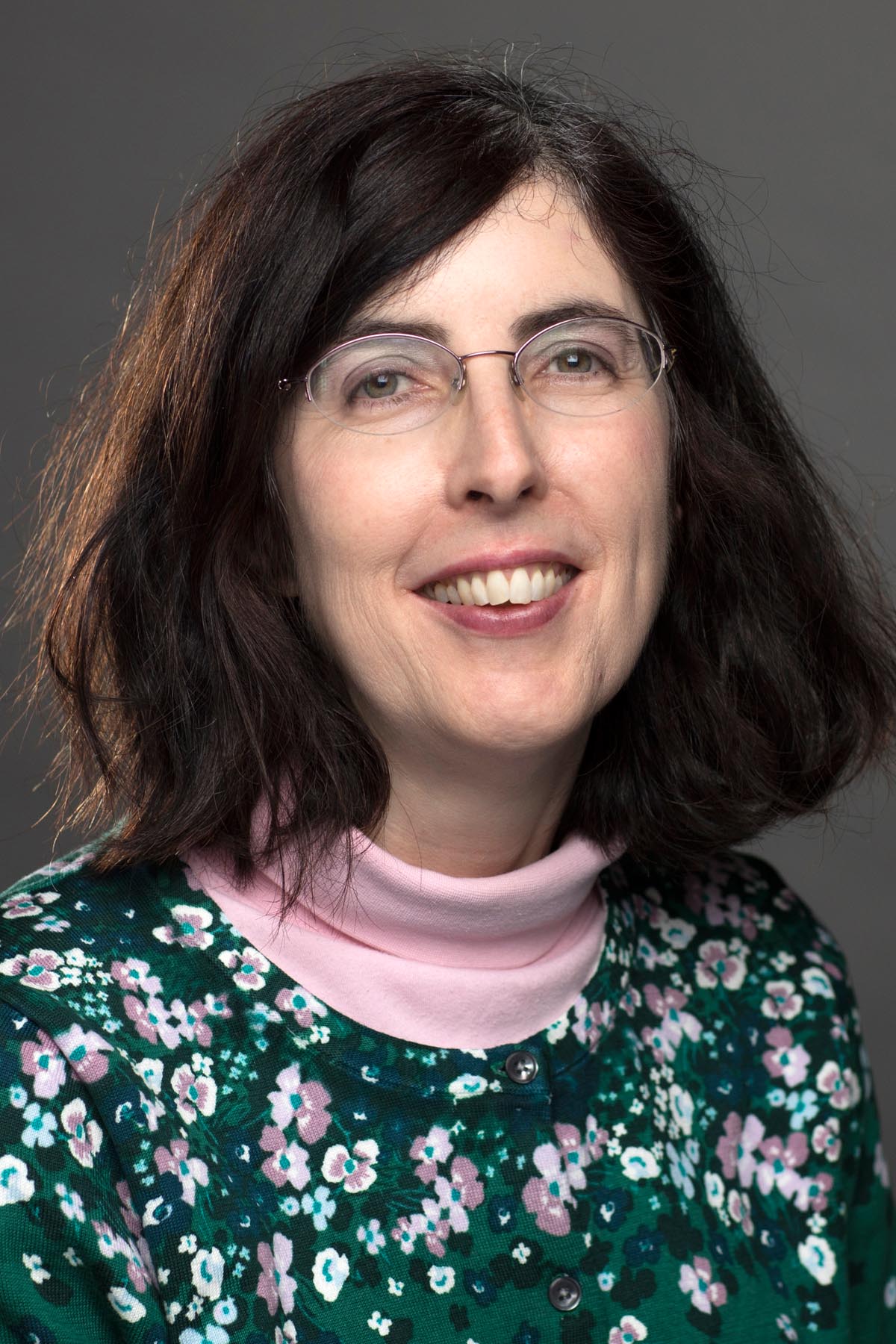Quinnipiac’s University Curriculum (UC) is designed around the idea that the knowledge and skills essential for success in a complex society and your future professional life are created across disciplines. Consisting of 15 core courses (46 academic credits) taken throughout your undergraduate experience, the UC will take you beyond your major or school to explore the different fields of study within the university.
As you integrate the UC into your education, you’ll acquire the universal skills all employers look for, such as how to write and speak clearly and effectively, analyze data, utilize digital media and other technologies, and adapt quickly to any professional, social and cultural environment.
The power of interdisciplinary collaboration
Interdisciplinary learning alongside students from across Quinnipiac’s schools begins as early as your First-Year Seminar (FYS). You’ll experience how the arts and sciences, business, communications, engineering and health care disciplines impact one another, gaining diverse lenses through which to view your own field of study and future career.
Why are these lenses important? Consider why a finance student should understand the ethical, political, economic and historical factors that led to the 2008 financial crisis, or why journalism and health science studies majors would want to learn about how social media has impacted news and human health.
Learn more about the First-Year Seminar
Senior Capstone
The University Curriculum culminates with a Senior Capstone course, in which you’ll put everything you’ve learned together into a signature work that will serve as the focal point of your educational portfolio and illustrate the breadth of your ability to potential graduate programs, post-baccalaureate fellowship or grant opportunities, and future employers. Flexible and designed with your academic interests and professional goals in mind, capstones can be completed as part of your major, part of a school/college requirement, or as a course open to any undergraduate. You also have the option to design your own capstone, in which you can incorporate study abroad, internships or independent research into your signature work.
Our Faculty
The University Curriculum draws from across the college and schools, disciplines and departments to offer undergraduate students more than 300 courses taught by passionate faculty-scholars who share the latest research findings, recent discoveries, and emerging trends in student-centered classrooms and inclusive pedagogy. UC faculty are excited to share their love of their disciplines with students from all backgrounds, majors and interests. UC faculty learn as much from you, as you’ll learn from them and your peers.
Peer Fellows
These individuals work directly in traditional lecture and exam-driven classrooms. Fellows coordinate weekly study groups that not only review key course concepts but also practice them. They also work with faculty to keep updated on student performance.



